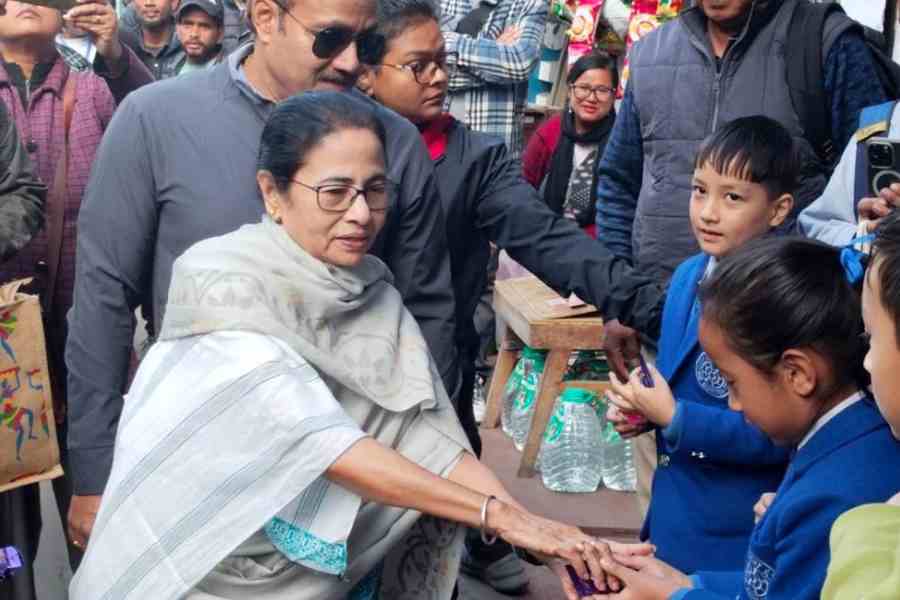Chief minister Mamata Banerjee on Tuesday announced that the 16 development boards formed for the Darjeeling hills would be revamped and a monitoring mechanism put in place to oversee their functioning.
The announcement was seen by many as an attempt to address allegations of financial impropriety against some of the boards, besides intensifying her outreach attempts in the Darjeeling hills by addressing the concerns of various local communities.
“We will revamp the development boards and the process will be completed within a month-and-a-half,” Mamata said following an administrative meeting at Richmond Hill, the government bungalow where chief ministers usually put up during their visits to Darjeeling.
The first development board, the Mayel Lyang Development Board for the Lepcha community, was notified on February 6, 2013. Since then, Mamata has formed 15 more boards in the hills, responding to demands from community members.
Over the last decade or so, the development boards have taken up projects like building houses, homestays, community centres and pony roads, among others. However, the major project of the boards has been to construct homes for beneficiaries at a cost of ₹2 lakh each.
There have been allegations of widespread corruption by some boards. “Since 2022, the government has not released any major funds to the boards,” said a source. “Once the revamp is completed, an audit will also be conducted.”
On Tuesday, Mamata said these boards would now be monitored by a committee. “Anit Thapa (the chief executive of the Gorkhaland Territorial Administration) will head the monitoring committee while L.B. Rai (the Trinamool chairman of the Mirik municipality) will be the vice-chairman,” Mamata said.
“The district magistrates will also be members of the committee,” Mamata said.
The decision to form a monitoring committee, a source said, can be viewed as an attempt by the state government to keep a tab on the functioning of the boards.
“Anit (Thapa), who heads the Gorkhaland Territorial Administration, has been suggesting to the chief minister for some time that the functioning of the boards be brought under some control.... She accepted the suggestion as it will strengthen Anit’s party (Bharatiya Gorkha Prajatantrik Morcha), a TMC ally,” said a source.
Until now these boards were functioning independently, without any interference from the Thapa-led GTA. While 14 of these boards were under the backward classes welfare department, the Khas board was under the north Bengal development department. The minority board worked under the aegis of the minorities affairs department.
These boards were formed when the relations between Mamata and Bimal Gurung, who was then at the helm of the GTA as the head of the Gorkha Janmukti Morcha, had hit rock bottom in 2012.
The Opposition had then alleged that Mamata was trying to divide the hill communities by playing the identity card.
Politically, the boards had not provided any major dividend to Mamata in the hills where the predominant demand is the Gorkhaland state.
“The chief minister seems determined to send a message that she wants to address the concerns of the hill communities,” said an insider.
During the meeting with the heads of 16 boards, Mamata announced Gopal Lama, former WBCS officer and Trinamool’s Darjeeling candidate in the last Lok Sabha elections, as the new chairman of the development board for the Tamang community.
“We will set up four skill development centres in the hills and work on land rights for tea workers,” she said.











